Finance and Operations provides essential services that support the daily activities of more than 29,000 students enrolled in undergraduate, graduate and professional programs at the University. Most of these services run in the background, and we are happy if students can take it for granted that they can purchase textbooks or host an event or pay their bills without having to think too much about it. But sometimes we have the opportunity to interact with students on a more personal level, which can be a rewarding experience for staff and students — enriching the quality of life for the campus community and supporting student success.
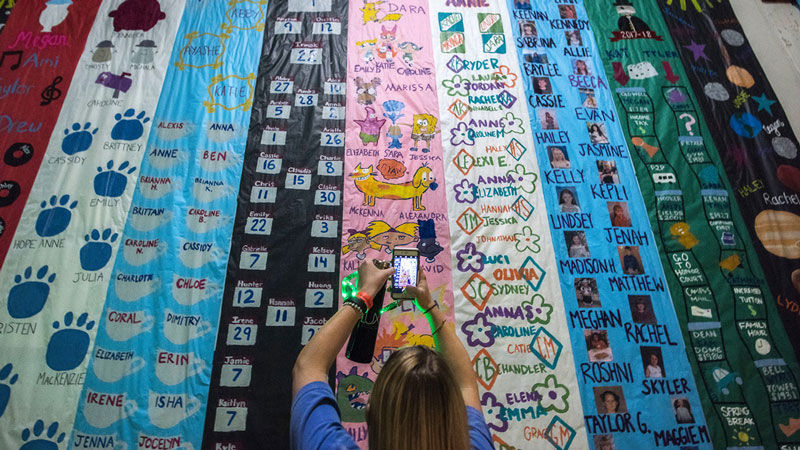
Mary Crabtree, EHS: Taking Students to New Heights
Every year it’s the same: the students are initially hesitant to make that first step onto the manual propelled lift that will hoist them up dozens of vertical feet in Fetzer Gym to hang their 22-foot banners. “Many hesitate due to the height, but I encourage them and remind them that this is what we trained for,” says Mary Crabtree, workplace safety manager in the Department of Environment, Health and Safety. “I tell them ‘You learned how to operate it safely.’”
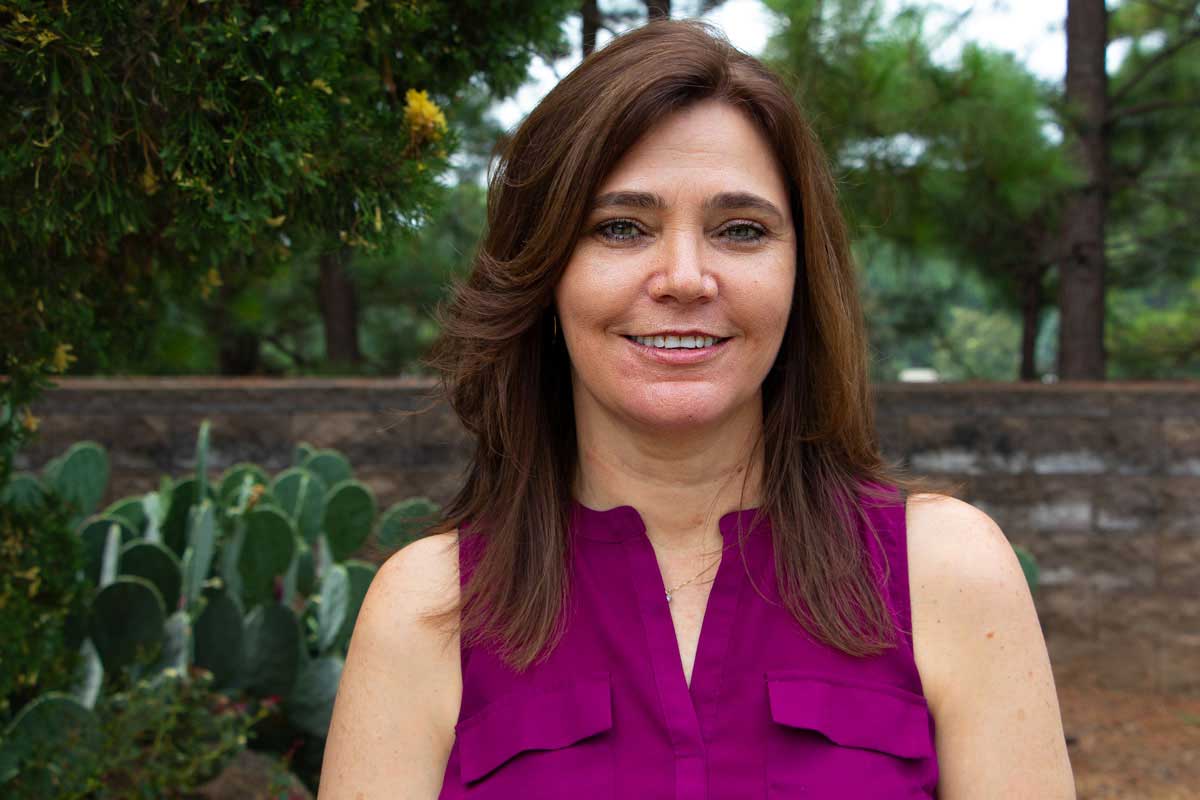
Since 2012, Crabtree has been offering more than just encouragement to student volunteers from the non-profit Carolina for the Kids (CFTK), who set up the gym for the annual UNC Dance Marathon. She also offers safety training and oversight. To decorate the gym and make the annual fundraiser for UNC Children’s feel like a huge party, students on the CFTK Operations Committee cover all four walls in Fetzer Gym A and B with hundreds of tall banners that they spend days decorating in advance.
Crabtree started out by training around five students on the manual-propelled lift; now she trains around 50.
“It is really cool to be able to use this kind of machinery to hang our banners as students ourselves and not have to hire someone else to do it,” says Irmak Saklayci ’19, CFTK operations chair. “This year we hung close to 300 banners, and we were able to do it independently because of Mary and her support.”
Read more about how Crabtree helps the students with the 24-hour no-sitting, no-sleeping UNC Dance Marathon, which hosted more than 2,000 students and raised $440,955.07 for UNC Children’s.
University Cashier’s Office: Helping Students Manage the Bottom Line
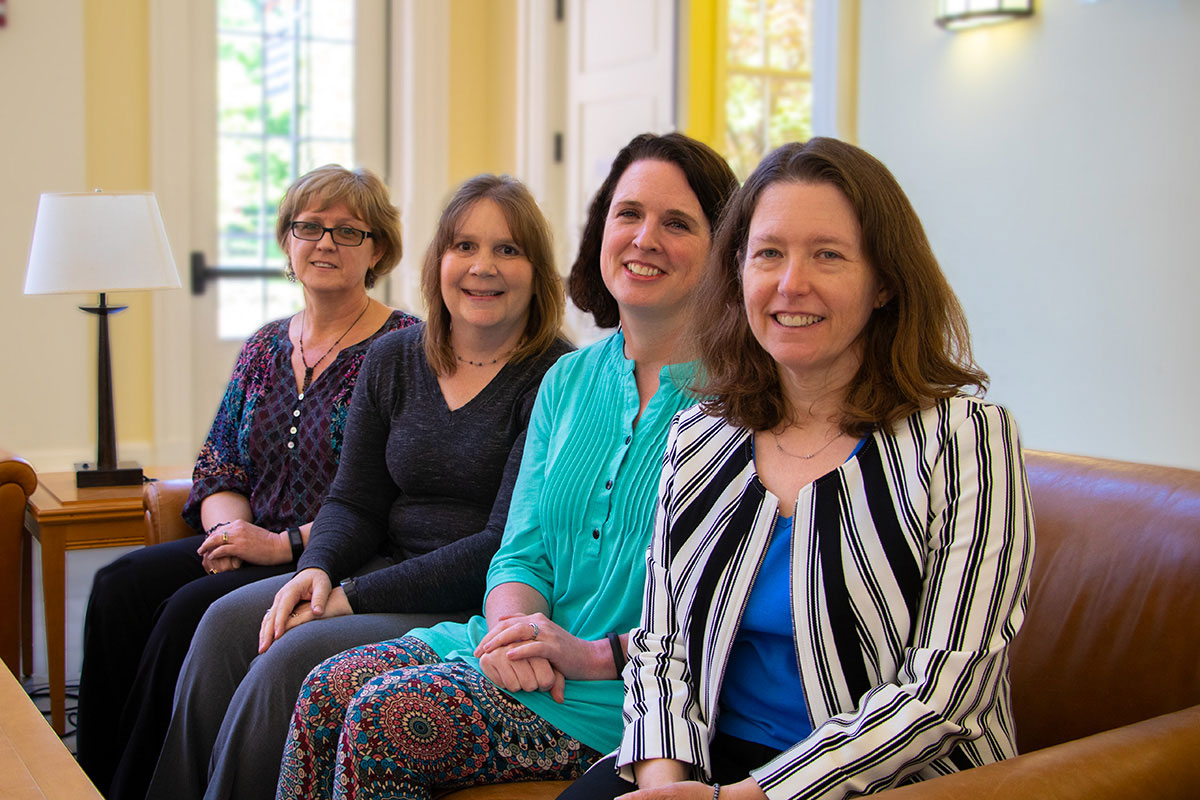
The University Cashier’s Office is in charge of billing and collecting student tuition, fees and other charges, accepting and depositing departmental receipts and servicing UNC-Chapel Hill-based student loans. But there’s more to it than that.
“We provide a lot of behind-the-scenes support to students regarding their financial life,” DeAhn Baucom, the University Cashier explains, “I couldn’t do it without my team.”
Three branches in the Cashier’s Office work together to make sure the student and loan accounts are accurate, paid in a timely manner, properly refunded and understood by the students.
Assistant Director of Accounting and Systems Angie Davis and her team review student charges in the ConnectCarolina system to ensure accuracy according to the individual student’s profile. The team uses more than 200 different tuition rules to connect students to the right rates for their academic program, confirming that charges are properly billed, and refunds are generated within University, State and Federal guidelines.
Business Systems Analyst Beth Williams oversees campus-based loans that are crucial to the financial aid packages that many students are awarded. A vast majority of these are Perkins loans, which are being replaced by UNC loans.
Associate University Cashier Kristy Nash manages customer service and business operations, including payment processing and banking-related functions, direct student service and collections.
“We work very hard to make sure our efforts serve the students,” Baucom says. “We do whatever it takes to make sure we do the right thing when it comes to their loans and refunds.”
Read more about how the University Cashier’s Office supports student success.
Tyrone Williams and Stevie Thompson, Housekeeping Services: Problem Solvers for Students
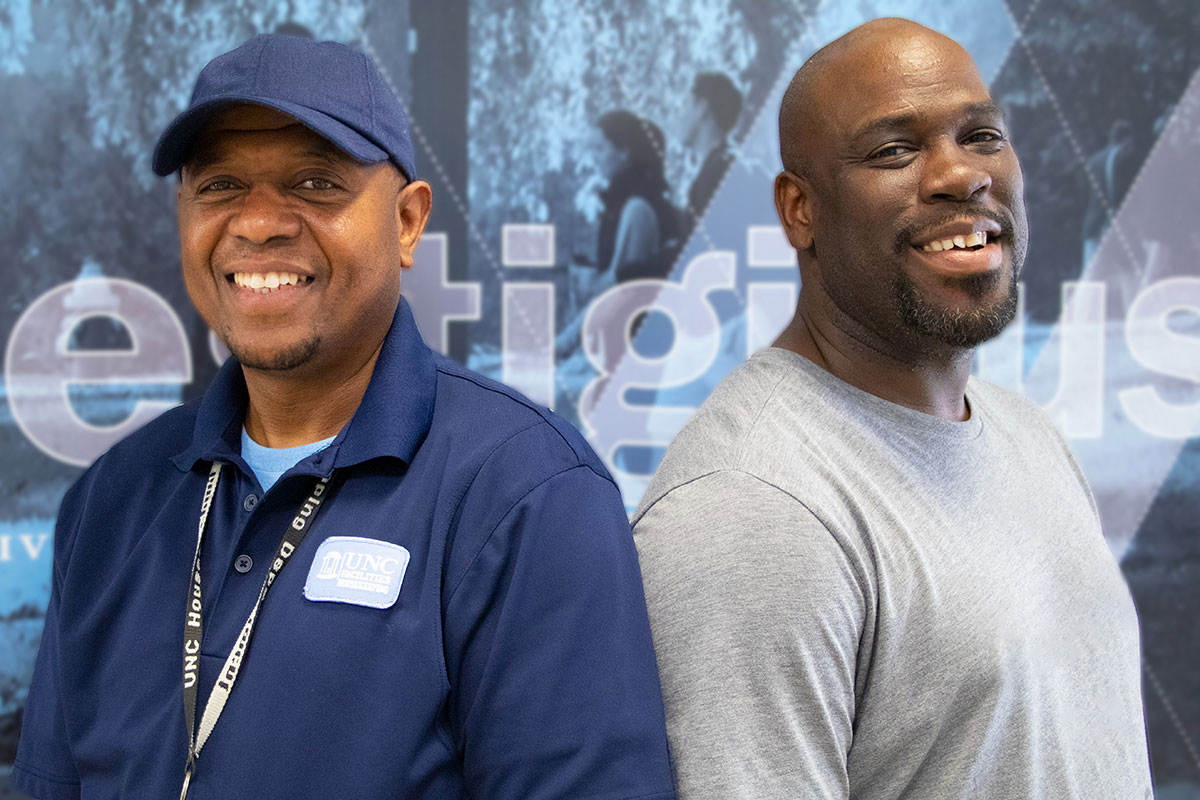
At 7 a.m., many students are still asleep in the University’s residence halls, but Housekeeping Services staff are already working throughout the buildings to clean restrooms, vacuum and dust study rooms and lounges, and mop and buff floors. Eighty-eight housekeepers and building environmental technicians service and support Carolina’s 34 residence halls and apartment communities and the more than 8,000 students that live there.
But housekeeping staff do more than keep the residence halls clean: they often serve as a friendly face to students who are away from home, many for the first time. Tyrone Williams, a housekeeper at Ehringhaus residence hall, cleans, mops and sanitizes the building’s restrooms. But as he passes students in the hallways, he asks how their classes are going and wishes them good luck on their exams. On other days he doles out more serious advice to students who are homesick or are distracted from their studies. Williams comes to work “to be a problem solver, not just for the building, but also for the students.”
Stevie Thompson, who cleans the floors, carpets and furniture in Ehringhaus, agrees and says he lets students know that if they have a problem, “don’t worry about it, if you need someone to talk to, come to us.”
Housekeeping’s mission is to keep residence halls clean and ensure that students have a safe and comfortable environment to live in. But the way Thompson sees it, “We do all we can to help them out, plus our jobs on top of that.”
Learn more about Housekeeping Services.
Sgt. James David, UNC Police: Building Trust on Campus
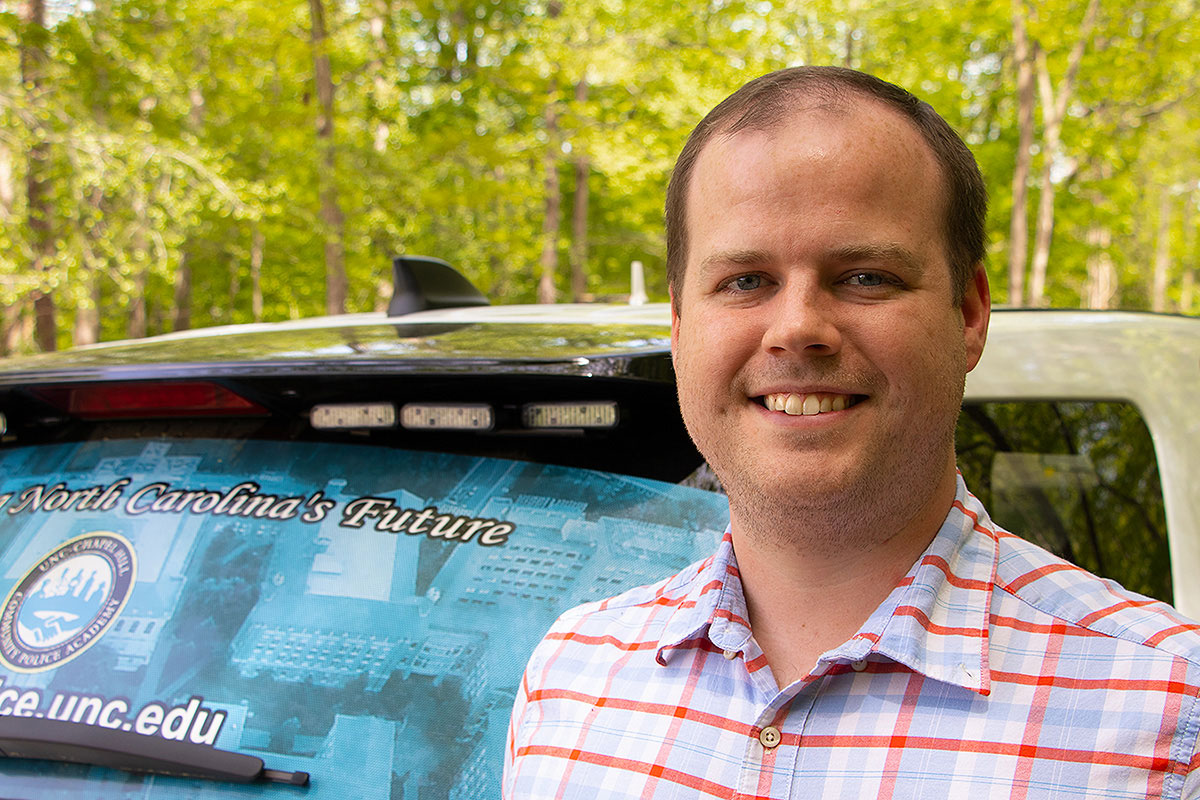
A 2010 Carolina graduate, James David’s career path took him in a very different direction from his economics major, or so he thought. Now a sergeant for UNC Police, he more typically engages his police academy training and his crisis intervention training. But he can also cite at least one recent time the economics major came in handy.
“I responded to a request for service from a student who was having a personal crisis, and I ended up helping her with her econ homework,” says David, who is the UNC Police community services manager. “That student saw a cop doing something different than they thought. It’s just as simple and rewarding as that.”
The community services team at UNC Police is small — consisting of David, his partner Officer Ray Rodriguez and his K9 Franklin, one of the first crisis response dogs in the state. But while it’s just the three of them, they make an early first impression on the students and then are very involved in campus life throughout the year. David says their main priority is to perform community-oriented policing, presenting UNC Police as campus partners who develop solutions to problems and increase trust in the police.
David distills his role into the act of illustrating to the campus community that there are people who care behind the badge.
“In a nutshell, as [UNC Police] Chief Jeff McCracken says, ‘You police with a community and not to a community,’” says David. “Our goal is to apply our expertise anywhere we can.”
Read more about how the UNC Police Community Services Department protects student safety and well-being.
Michele Gretch-Carter, UNC Student Stores: Supporting Carolina’s Mission

Hundreds of students flock to UNC Student Stores every day to run errands, grab a snack or coffee, study or shop. Student Stores is a destination spot on campus, but it goes beyond offering school supplies and memorabilia — it supports Carolina’s mission by maintaining affordability and contributing to student scholarships.
All net revenue from Student Stores supports need- and merit-based scholarships, and the textbook affordability program has saved students millions.
“The last three years we’ve saved students over $6 million and more than half of that comes from our textbook rental program,” said Michele Gretch-Carter, director of UNC Student Stores. “We want to make sure that we’re a one-stop shop for academic materials and relevant to what the students are needing for their courses.”
Staying relevant to students allows Student Stores to continue to provide affordable academic options. By offering price matching for textbooks and reducing prices by 10% before they are put on shelves, Student Stores ensures that every student gets the materials they need in a timely and affordable manner.
“The general merchandise, the café, the Pit Stop, they’re all important pieces of our business,” said Gretch-Carter. “But making sure that we have the right material at the right time for students’ courses — that’s why the students are here and that’s a function of everything we do, from how we sell our textbooks to how we employ our students.”
Read more about how the UNC Student Stores keeps Carolina affordable for students.
